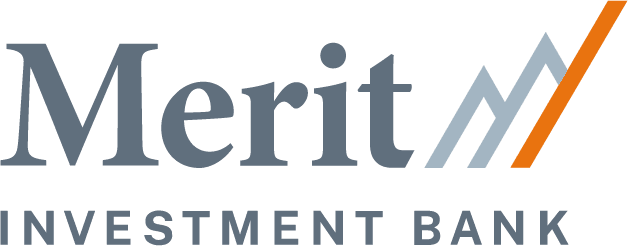1. Retention is the new growth.
In a shrinking revenue environment, smart companies must ensure they keep their existing customers happy. Objectively, many companies do not have the time (or cash) to pursue new business which is a riskier pursuit than keeping your current customers very content.
While short term reprieves, allowances and gov’t support are being pursued by many, fixed costs and debt service will need to be reckoned…soon. Maintaining business is the first key to the inevitable rightsizing and indeed survival of your business.
Whether you believe in a check marked, V-shaped, U-shaped recovery or deeper and longer recession, most firms have shrunk in size. As customers come back on line they too will be justifying vendors and will prize those suppliers that can react nimbly, be efficient and cost-effective. Even more pressure will be placed on firms to be easier to do business with and anticipate customer’s needs.
In order to not be in the “justified” or placed in the vendor consolidation bucket, we recommend you double down on anticipating customer need, packaging your offerings, communicate more frequently. Listen for opportunities to serve your existing base in a way that makes your firm indispensable and easier to do business with compared to your competitors.
2. Have a plan A,B,C for the next phase of return to the new normal – business as unusual.
While forecasting the recovery will be difficult, it is imperative for survival that you have various contingency plans forecasted out for the next 12 months under various scenarios. While PPP or EIDL may have helped, cash reserves are depleted or non-existent for many companies and a premium will be placed on realistic plans and proforma. QBR’s will have added weight in navigating the recovery.
Not only will you need this to run the business under the new normal but If you carry any third-party debt the banks will require and want to know and ensure you have cogent plans with plenty of options.
The strength of your plan and management of it over the next 12 months may very well be the single largest factor to surviving and indeed keeping your debt in place to continue to conduct business as unusual.
3. Banks will ultimately pick the winners and losers – while PPP / EIDL will help in the short term, let’s call government support what it is – primarily keeping folks employed, and a band-aid for those most affected by the disaster that is COVID-19. As EIDL was recently eviscerated. ($2mm max. down to $15k max. now we hear as of today is back up to $2MM max.) do not depend on the government or even the banks to help beyond Q2.
Banks, in particular, will do what they do: Reduce their risk of default, pick industries they like and no longer like, and many lines of credit or other facilities will be reduced or eliminated. For those out of covenant once the dust settles and the new leaders and laggards are re-defined many will be invited to bank elsewhere.
Our restructuring practice has already seen a great influx of calls from worried entrepreneurs who have seen this dance before – banks will survive by offloading your loan or getting themselves back into regulatory compliance by jettisoning non-compliant debtors.
If you take away one thing from this list, those that get ahead of restructuring debt will be well served vs. those that let the banks decide their fate.
4. Be Nimble and opportunistic – adjust your offerings to the market – the new business as unusual – look to fill voids left by market exits.
The US economy relies heavily on consumer spending which is a full 70% of US GDP. While historically US consumers have short memories, given the effects of The Great Recession (TGR) still near in historical memory (Millennials came of age during TGR and post-recovery period – now they are the largest consumer subset) the COVID shock will further shape their spending patterns and what they value. We believe the sudden and deep shock of COVID on consumers will lead to cautious and more thoughtful spending and lower debt consumption.
Be sure, even if your market is B2B vs. B2C, to adjust offers around lower cost, efficient offerings and be nimble to the will of the consumer to meet demand. Further, be very cautious around new market entrants. Old world thinking, and traditional product development cycles will also need more nimble approaches. In a limited capital environment, spend wisely, and give consumers perhaps a good, better, best offerings.
While keeping with your core, be open and opportunistic to fill the voids left by those firms that do not survive.
5. Focus on the long game while taking share.
While nimbleness will be prized extreme focus on the core elements and value drivers of your business will be key to long term brand value. As we have seen many have pursued a survival pivot, still others have chased shiny objects, and yet others have continued to build brands that endure by becoming even better at their craft honed by the test of fire that is COVID.
In conjunction with #1 above, taking care of your customer should lead to a more acute focus on “why your firm exists”. This is a favorite gating question of private equity acquirers. Now more than ever a focused and realistic answer to this question will help you focus your efforts.
Strategic use of existing assets complemented by a deeper understanding of how consumers and companies alike are wanting to buy in the new normal will be key to building back sustainable enterprise value. i.e while Tesla and GM pivoted to ventilator production utilizing considerable asset base and organizational competencies, we suspect they will be back to making a better automobile as their primary core competency.
Extreme focus on your core and taking share or filling voids left in the market around your competencies vs. sitting back will be the key to creating exit velocity.
For those looking to transact or sell through an M&A liquidity event or exit, Merit Investment Bank’s Grow Fast & Exit Profitably!® could be an excellent tool to rebuild enterprise value and achieve the exit you have dreamed of.
“Business as Unusual” is a cautionary tale: Companies have benefited from a government response and benefactorial posture. The news of a flattening curve and talk of reopening world economies have most of us positive and optimistic. As Entrepreneurs and CEOs’ we need to perhaps be looking ahead and be very cognizant of market forces and lessons learned from past shocks to our economic system to ensure we protect and preserve value, as the fight is not over yet!
“Do you know why the nose of the bulldog is sloped backward? So it can keep on breathing without ever letting go.”
~W. Churchill
Seek wise counsel and lead on!

Posted By:
Craig Dickens


0 Comments